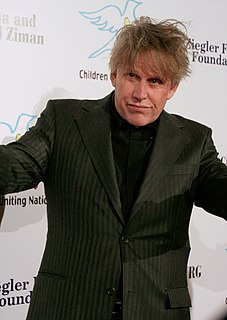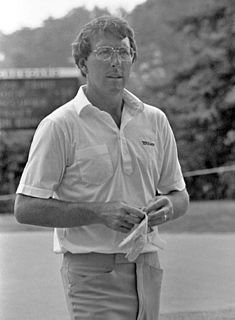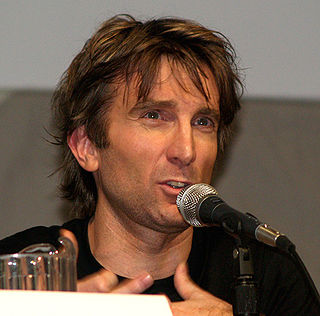A Quote by Robin McKinley
The story is always better than your ability to write it.
Related Quotes
Giving is better than receiving, 'cause that's the ability you give somebody to get stronger than they would be, than they could be, than they should be, before you loved them. When you give somebody the ability to feel your love and your healing, you're a doctor in the spirit, bringin' medicine from God to your heart and on to them.
The story you envision as you start out is always a great story; when the facts turn out to be different from, or more complex than, what you expected, your first reaction is always disappointment. That's when you must fight the urge to bend the story to your preconceived notions. First, it's dishonest. And second, in the end, the truth is always the best story.
I was interested in the ways we can write biography. When you're first starting to write about your own life it feels so shapeless because you don't know how to make your own story cohesive. How do I pluck a story out of the entirety of what it means to be alive. It occurred to me recently that when you're telling a story about your own life, rather than taking a chunk, you're kinda like lifting a thread from a loom.
What could you do better for your children and your children's children than to record the story of your life, your triumphs over adversity, your recovery after a fall, your progress when all seemed black, your rejoicing when you had finally achieved? Some of what you write may be humdrum dates and places, but there will also be rich passages that will be quoted by your posterity.
It is truly excellent to have someone believe in you and your ability to write. But I think it is just as helpful to have people who don't believe in you, people who mock you, people who doubt you, people who enrage you. Fortunately, there is never a shortage of this type of person in the world ... write for yourself. Write for the story. And write, also, for all of the people who doubt you. Write for all those people who are not brave enough to do this grand and wondrous thing themselves. Let them motivate you.
At the end of the day, all you really have is your own sense of your artistic ability and I've always stuck with that my whole life. I guess there is always a bit of relief that I have and real joy of being able to engage other people who are talented, equally or better than you, and you can work with them.
You have to surrender to your mediocrity, and just write. Because it's hard, really hard, to write even a crappy book. But it's better to write a book that kind of sucks rather than no book at all, as you wait around to magically become Faulkner. No one is going to write your book for you and you can't write anybody's book but your own.
The story, I like to say and remember, is always smarter than you—there will be patterns of theme, image, and idea that are much savvier and more complex than what you could come up with on your own. Find them with your marking pens as they emerge in your drafts. Become a student of your work in progress. Look for what your material is telling you about your material. Every aspect of a story has its own story.
You'd better discover a more important motive than publication for your work or else you'll go crazy. My sense is that you'll be writers only if you are convinced that to write is something for which there is no substitute in your life. You must therefore be ambitious for your work rather than for its promotion. The good news here is that if you assign secondary importance to publishing and primary to writing itself, you will write better, and will thus increase your odds of getting publishing.


































